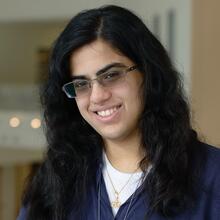There are practical things non-Muslim allies can do as a response to this particular act of terrorism and that all of us can do at all times to prevent future violence—and to protect not only Muslims but also people of color, immigrants, Jews, the L.G.B.T. community and all groups that are dehumanized and persecuted in ways large and small.
First, reach out to your local mosque to offer your support and prayers and ask if there is anything you can do to help right now. Attend jummah (the holy Friday afternoon prayers for Muslims, akin to Mass for Catholics) in solidarity. Send messages of support and compassion to your Muslim neighbors. If you know any Muslims here or abroad, check in with them to ask how they are doing. When any one of us is attacked because of hatred toward our identity, it is difficult and scary to simply go about the day with a visible sign of that identity. A neighbor reaching out can be transformatively reassuring; I promise it will make a world of a difference right now.
A neighbor reaching out can be transformatively reassuring; I promise it will make a world of a difference right now.
When a terrorist killed at least 11 Jews in a Pittsburgh synagogue last year, Muslim communities in the area raised hundreds of thousands of dollars to support victims, and now that same Jewish community in Pittsburgh is returning the gesture. Stories like this bring light to these dark days. I always wish and pray these acts of generosity and compassion are never needed, but I am so grateful that they happen—and happen reciprocally—when the need does arise.
If you belong to a house of worship or a civic organization, ask your clergy and leadership to also reach out to local mosques and Islamic institutions to offer support. Extend invitations to your own religious services. Make a plan to host an interfaith event, volunteer for a common cause and foster interpersonal and community relationships. We all depend on those bonds for our survival.
Call out those in your life who dehumanize, stereotype or mistreat Muslims or any marginalized groups. Words matter, both those used to describe the terrorist and those used to describe the victims. Call out others in a way that they will hear you: calmly and firmly but without demonizing them. Last fall, I called out a political candidate who referred to Muslims and Middle Eastern people as “savages” not by yelling at him but by calmly asking why he used that word and explaining why it is dangerous—and deadly. He heard me and vowed to not repeat his mistake. It is not fair that this must be done, but I have found this to be the most effective response.
Make a plan to host an interfaith event, volunteer for a common cause and foster interpersonal and community relationships. We all depend on those bonds for our survival.
In addition, condemn this act of terrorism in New Zealand just as Muslims are constantly called upon to condemn acts of violence and extremism committed in our name. The issue of whether any of us should have to condemn acts of violence committed in our name is far too complex to address right now, but one of the benefits of public condemnations is that the rest of the world knows where we stand. Given the power of rhetoric and public opinion, this can save lives. Condemn terrorism not just in words but in actions. Think about what attitudes, mindsets and public policies contributed to the atrocity in New Zealand and condemn those just as intensely—in your own mind, in the voting booth and in your interactions with others.
Call this an act of terrorism in any and all references you make to it in your mind, in conversations with others and in articles or social media posts. It meets all of the definitions: an act of violence targeting defenseless civilians to achieve a political goal and to instill fear and trauma. Despite this, some news outlets such as Fox have conspicuously avoided referring to what happened in New Zealand as terrorism. When Muslims are solely defined as the perpetrators of terrorism and not the victims, it gives fodder for the hatred fueling attacks like the one in New Zealand. The reality is that Muslims are the most numerous victims of both violent groups like ISIS and of military and state security actionsby the United States and other countries.
[view:related_content]
Be mindful that there are acts of terrorism and equivalent violence, both by civilian groups and governments, that do not receive the media coverage of the New Zealand attacks, and that the victims of those attacks deserve just as much compassion and support.
Do not watch the livestream of the New Zealand terrorist attack. The terrorist recorded his attack with a camera attached to his helmet. Terrorists often intend to have their attacks broadcast in order to spread fear and inspire further attacks (think Sept. 11, 2001). Do not further this cause. Do not use or remember the terrorist’s name. Instead, remember the lives of the victims and the peace and heroism they displayed in their final moments.
Acts of solidarity, outreach and compassion should not be limited to the immediate aftermath of a tragedy. Rather, the ultimate path to a deeper and more sustainable positive peace is to build these relationships and speak out against hate-driven speech and policies long before we come to that point.
